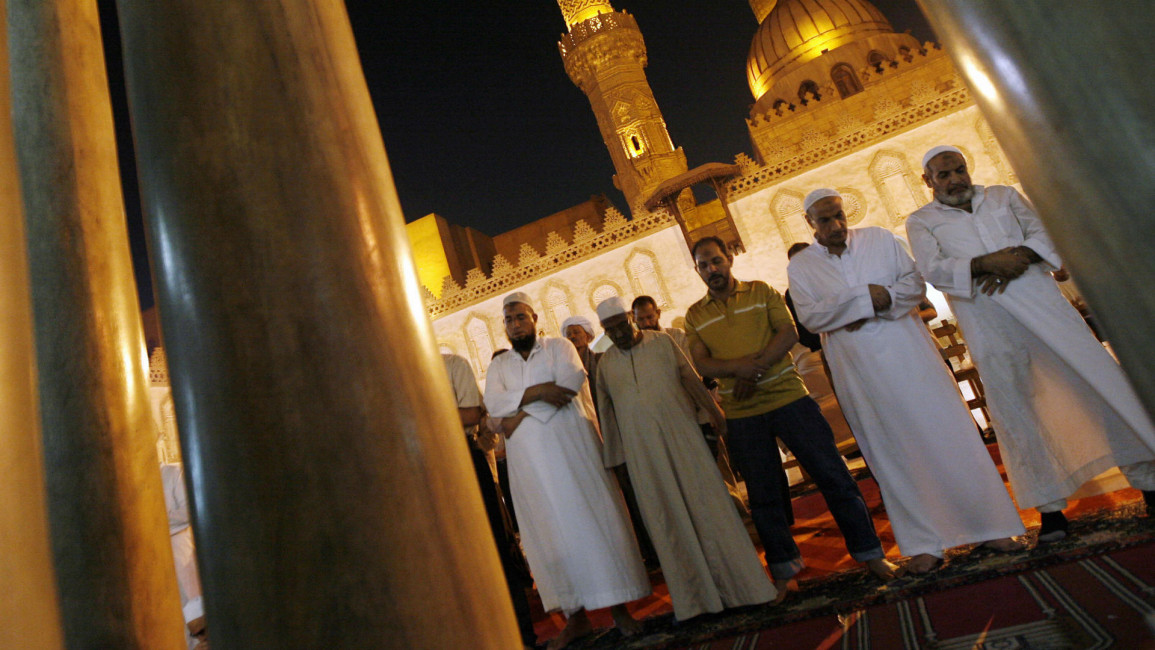
Egypt imposes strict rules on Ramadan prayers
The Egyptian government has put in place strict rules on mosques around the county on the eve of the Islamic holy month of Ramadan, which is set to begin on Thursday.
The Ministry of Awqaf, which is in charge of mosques and religious donations, announced last week it would step up monitoring as well as severely limit the number of mosques allowed to hold night-time prayers.
The evening prayers, known as tarawih, are observed throughout the month and include ten days of “seclusion” at the end of the month, when some people sleep in the mosque overnight.
Under the new restrictions Cairo, the city of a thousand minarets and a population of about 17 million, will have only 247 mosques allowed to hold “seclusion” sessions and 196 allowed to hold night-time tarawih prayers.
In Alexandria, home to about 4.5 million people, there will be just 19 mosques permitted to hold tarawih prayers.
A Ministry of Awqaf official told Saudi newspaper al-Sharq al-Awsat, “The restrictions have been made to prevent any members of the Muslim Brotherhood or extremist organizations from entering mosques and holding meetings.”
“Members of the Salafi al-Nour Party and Gamaa al-Islamia loyal the Brotherhood will also be prevented from giving religious lessons, as they have done in past years, and leading tarawih prayers in ministry-run mosques. Violators will be prosecuted on the spot,” the official added.
The new restrictions are part of the government crackdown against the banned Muslim Brotherhood, which has left at least 1,400 people dead and more than 40,000 in custody since the 2013 military coup, according to Human Rights Watch.
On Tuesday, an Egyptian court upheld a death sentence against ousted president Mohamed Morsi for 'plotting jailbreaks and attacks on police' during the 2011 revolution.
Critics of the strict religious restrictions have called them impossible to actually implement in a country of thousands of mosques, particularly in remote rural areas with limited government presence.
The Arabic-language hashtag #AwqafMonitorsTarawihPrayers was launched, poking fun at the new regulations on Twitter.
One user posted an image of elderly man in a panic calling the authorities while at the mosque.
Twitter Post
|
Translation: Hello, State Security?! The guy praying next to me was invoking curses on Sisi!
Another Twitter user joked:
Twitter Post
|
Translation: Anyone who prays too long is a Brotherhood supporter, too short a revolutionary and the ones that don’t show up at all are Sisi supporters. Doesn’t the government have better things to do?
Another user compared the prayer monitors to taking a school exam.
Twitter Post
|
Translation: While you’re praying you can’t look at the guy next to you. Cheat sheets aren’t allowed and you can’t take out a Quran to take a peek inside. They want everyone to pray on their own merit.




